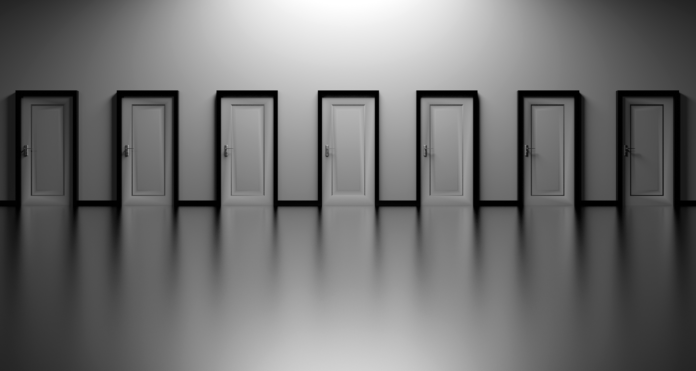Filosoficamente parlando, scegliere è espressione diretta della nostra volontà. Scegliere come condurre la propria vita, ma anche quale abito indossare o quale serie tv seguire sono sinonimi di libertà. Questa idea è fortemente radicata nel nostro sistema culturale, ma è davvero così?
Il contesto in cui viviamo è fluido, caotico. Ma soprattutto, ci costringe a compiere tante scelte: secondo alcune ricerche ogni giorno prendiamo mediamente 35000 decisioni, più o meno volontarie e consapevoli. Scegliere, ci dicono le neuroscienze, è un processo cognitivo complesso per il nostro cervello, e avere troppe opzioni a disposizione rischia di farlo sprofondare in una vera e propria “paralisi” cognitiva. In questa situazione “di blocco” il senso critico viene meno in quanto le numerose scelte disponibili ci fanno sentire sopraffatti.
Il contesto in cui siamo esposti più che mai alla “decision fatigue” sono i processi di acquisto: i fattori da considerare, le informazioni da processare e l’offerta disponibile si sono ampliati a dismisura. L’avvento del web ha esacerbato la possibilità di scelta, dandoci l’illusione che tutto sia a portata di mano e che opportunità illimitate ci aspettino dietro ogni clic. Di recente ho acquistato un aspirabriciole su Amazon: per ridurre il ventaglio di scelte, ho dovuto filtrare caratteristiche come potenza, capacità di aspirazione, autonomia di utilizzo, fascia di prezzo, brand. E naturalmente, leggere le recensioni dei prodotti disponibili. Che si tratti del ristorante in cui cenare o del nuovo smartphone da acquistare, nessuno ormai compie scelte senza consultare le opinioni altrui. Particolarmente, se si tratta di opinioni autorevoli: secondo una ricerca recente un italiano su tre segue almeno un influencer.
Quali conseguenze ha questa sovraesposizione alle scelte? La FOBO, per dirla in un acronimo: Fear of better options. Coniata dall’imprenditore Patrick McGinnis, questa espressione indica l’ansia di non compiere la scelta giusta e di rinunciare a opzioni migliori. Cosa c’è dietro questa “malattia sociale”? Un bisogno biologicamente innato nell’essere umano, quello di desiderare il meglio per sé, spinto all’estremo fino a trasformarsi in un meccanismo dannoso e controproducente.
Innumerevoli scelte da compiere sono inversamente proporzionali alle energie limitate dell’essere umano. Lo sanno bene i grandi leader, che cercano di semplificare e ridurre al minimo il numero di decisioni da prendere quotidianamente, ad esempio stabilendo un outfit di routine. Questo spiega perché Mark Zuckerberg indossi sempre la stessa identica t-shirt grigia. Se proprio non vogliamo uniformare il nostro look ma nemmeno sforzarci di scegliere, possiamo sempre affidarci all’algoritmo di un’app. O, più semplicemente, ricordarci che la scelta dell’outfit non cambierà la nostra vita.
Philosophically speaking, a choice is a direct expression of our will. Choosing how to lead your life, but also what to wear or which TV series to follow are synonyms of freedom. This idea is deeply rooted in our cultural system. But, is it really so?
The context in which we live is fluid, chaotic. But above all, it forces us to make so many choices: according to some research, every day we make an average of 35,000 decisions, more or less voluntary and aware. To choose, we’re told by neuroscience, is a complex cognitive process for our brain, and having too many options available risks sinking it into a real cognitive “paralysis”. In this “blocking” situation, the critical sense fails as the numerous choices available make us feel overwhelmed.
The context in which we are exposed more than ever to “decision fatigue” are the purchasing processes: the factors to consider, the information to process and the offers available have expanded dramatically. The advent of the web has exacerbated the possibility of choice, giving us the illusion that everything is at hand and what unlimited opportunities await us behind every click. I recently purchased a handheld vacuum cleaner on Amazon: to reduce the range of choices, I had to filter features like power, suction capacity, usage autonomy, price range, and brand. And naturally, I read the reviews of the available products. Whether it’s the restaurant to dine in or the new smartphone to purchase, no one now makes choices without consulting the opinions of others. Particularly, when it comes to authoritative opinions: according to recent research, one in three Italians follows at least one influencer.
What are the consequences of this overexposure to choices? The ‘FOBO’: Fear Of Better Options. Coined by the entrepreneur Patrick McGinnis, this expression indicates the anxiety of not making the right choice and to give up on better options. What’s behind this ‘social illness’? A biologically innate need in the human being, to want the best for oneself, pushed to the extreme until it becomes a harmful and counterproductive mechanism.
Countless choices to be made are inversely proportional to the limited energy of the human being. The great leaders know this well, and because of this awareness they try to simplify and minimize the number of decisions to be made on a daily basis, for example establishing a routine outfit. This explains why Mark Zuckerberg always wears the exact same gray t-shirt. If we just don’t want to standardize our look but don’t even try to choose, we can always rely on an apps’algorithm. Or, more simply, remind us that the choice of our outfit will not change our lives.








